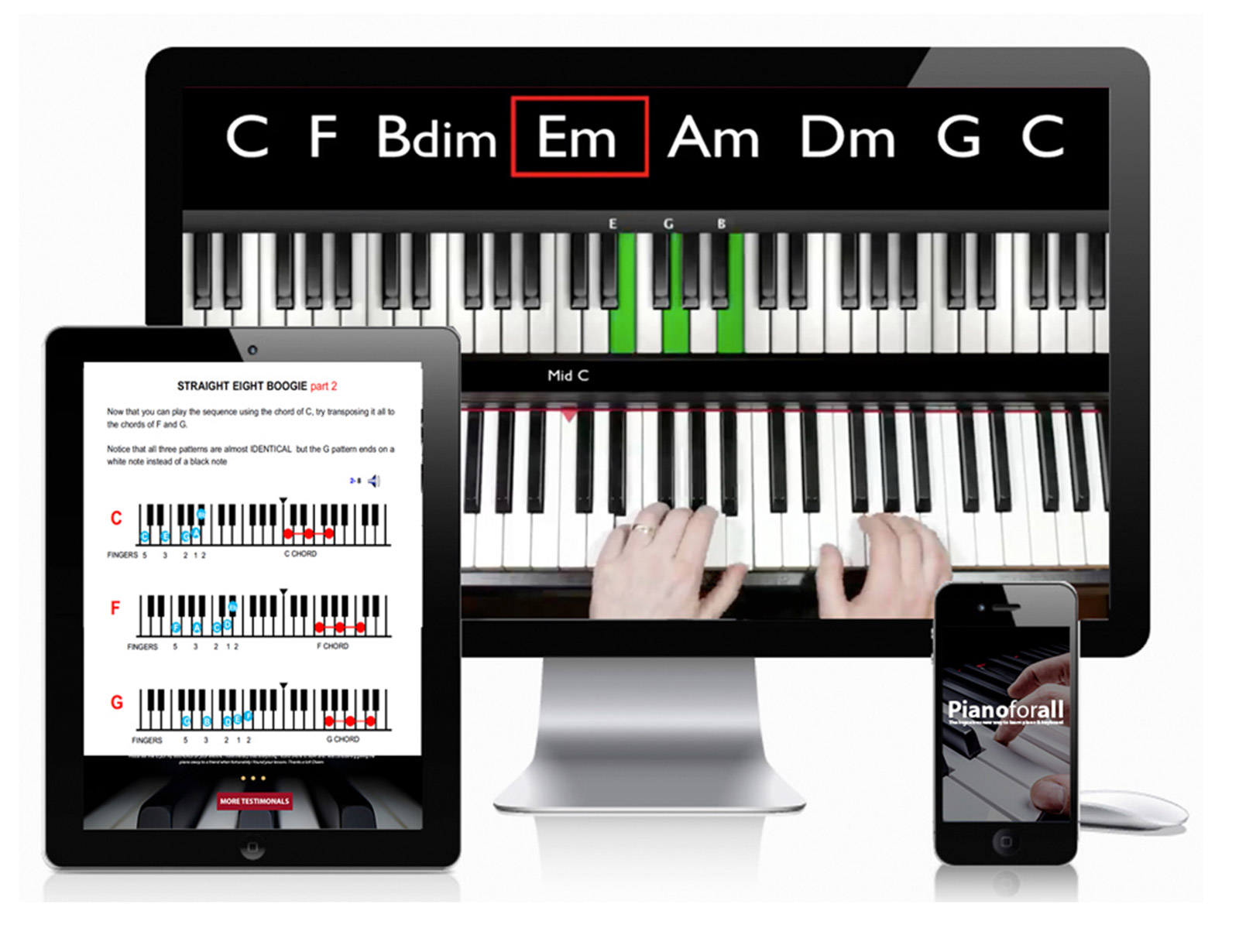
|
The Best Ways to Learn Piano Overview
Learning to play the piano is an enriching and rewarding journey that opens the door to a world of musical expression. Whether you’re a complete beginner or have some musical background, finding the best way to learn piano can make a significant difference in your progress and enjoyment.
In this guide, we’ll explore the various approaches to learning piano and help you discover the method that suits your goals and learning style.
1. Traditional In-Person Lessons:
One of the classic ways to learn piano is through traditional in-person lessons with a qualified piano teacher. These lessons offer personalized guidance, immediate feedback, and a structured curriculum. Working with an experienced teacher can help you build a strong foundation in piano technique and music theory. However, in-person lessons can be costly, require a consistent schedule, and might not be feasible for everyone.
2. Online Piano Courses:
Online piano courses have gained immense popularity in recent years due to their convenience and flexibility. Platforms like Pianoforall, Playground Sessions, and Flowkey offer multimedia lessons that combine e-books, videos, and interactive tutorials. These courses often allow you to learn at your own pace, making them suitable for busy schedules. They also cover a wide range of skill levels, from beginners to advanced players.
3. Apps and Software:
Various piano learning apps and software are available for both desktop and mobile devices. These apps offer interactive lessons, real-time feedback, and gamified learning experiences. Some notable apps include Simply Piano, Yousician, and Synthesia. While apps can be engaging and accessible, they might lack the personalized guidance of a human instructor.
4. Self-Teaching and Books:
For those who prefer a self-paced approach, there are numerous piano instruction books and resources available. Books like “Alfred’s Basic Piano Library” and “Adult All-in-One Course” offer structured lessons and exercises for different skill levels. Self-teaching requires self-discipline and motivation, but it can be a cost-effective way to learn piano.
5. Hybrid Approaches:
Combining multiple learning methods can provide a well-rounded education. For instance, you could take in-person lessons while supplementing your learning with online resources and apps. This approach allows you to benefit from the expertise of a teacher while also enjoying the convenience of online materials.
Remember that progress in learning the piano is not always linear. There may be plateaus and moments of frustration, but with consistent practice, patience, and a willingness to learn, you can achieve your piano-playing goals over time. The journey itself can be immensely rewarding, and the sense of accomplishment you’ll experience as you play your favorite tunes is well worth the effort.

Piano4all Our Top Recommendation Pianoforall offers a comprehensive and innovative approach to piano learning that combines e-books, audio lessons, and video tutorials.
|
How Long Does It Take to Learn Piano?
The time it takes to learn piano varies widely and depends on several factors. These factors include your previous musical experience, the amount of time you dedicate to practice, your natural aptitude for music, the quality of your learning resources, and your specific goals as a pianist.
Here Are Some General Guidelines to Consider:
1. Basic Proficiency (Beginner Level): For someone with no prior musical experience, it typically takes a few months of consistent practice (1-2 hours a day, several times a week) to achieve basic proficiency. This includes learning basic hand positions, reading simple sheet music, and playing basic songs.
2. Intermediate Level: To reach an intermediate level where you can play more complex pieces and have a good grasp of music theory, it might take around 1-2 years of dedicated practice. This involves developing finger strength and dexterity, understanding more advanced musical concepts, and playing a variety of songs.
3. Advanced Level: Becoming an advanced pianist capable of performing more challenging classical pieces, intricate compositions, or improvising might take several more years of consistent practice. Some individuals reach this level in 5-10 years, while others may take longer.
4. Professional Level: Becoming a professional pianist who can perform at a high level, teach others, or compose original music usually requires a decade or more of intensive practice and study. This level of expertise demands a deep understanding of music theory, exceptional technical skill, and extensive repertoire.
Remember that learning the piano is a lifelong journey, and even experienced pianists continue to refine their skills and explore new musical territories. The key to progress is consistent practice, effective learning strategies, and a passion for music.
Setting realistic goals and tracking your progress can help you stay motivated and gauge your improvement over time. Additionally, having a skilled instructor or quality learning resources can significantly accelerate your learning process.

Piano4all Our Top Recommendation Pianoforall offers a comprehensive and innovative approach to piano learning that combines e-books, audio lessons, and video tutorials.
|
How Hard Is It to Learn Piano?
The difficulty of learning the piano can vary greatly from person to person, and it depends on several factors. Here are some key considerations:
1. Musical Background: If you have prior musical experience, such as playing another instrument or having a background in music theory, you may find certain aspects of learning the piano easier due to your existing knowledge of musical concepts.
2. Natural Aptitude: Some individuals have a natural aptitude for playing musical instruments, which can make learning the piano come more easily to them. However, even if you don’t have a natural knack for music, consistent practice can lead to significant improvement.
3. Age: Younger learners, especially children, often have an easier time learning new skills, including playing the piano. However, adults can also learn to play the piano successfully with dedication and practice.
4. Practice and Dedication: Learning the piano, like any skill, requires consistent practice. The more time and effort you invest in practicing, the faster you’ll progress. Regular practice helps build muscle memory, finger strength, and overall proficiency.
5. Motivation and Persistence: Your attitude and motivation play a crucial role in your learning journey. A positive mindset and persistence in the face of challenges can significantly impact your progress.
6. Complexity of Repertoire: The difficulty of the music you’re learning also matters. Simple melodies and basic chord progressions are generally easier to learn than complex classical compositions or intricate jazz pieces.
7. Learning Method: The method you use to learn the piano can influence the difficulty. Traditional in-person lessons, online courses, apps, and self-teaching all have their unique advantages and challenges.
8. Goals: Your goals as a pianist also play a role. If you aim to play a few simple songs for personal enjoyment, the learning curve may not be as steep as if you’re striving to become a professional concert pianist.
In general, learning to play simple melodies and basic chords on the piano can be relatively achievable for most people, even those with no prior musical experience. More advanced techniques, intricate pieces, and a deep understanding of music theory can take years of dedicated practice to master.
Conclusion
The best way to learn piano ultimately depends on your individual preferences, learning style, and goals. Each method has its pros and cons, so it’s essential to consider factors like cost, flexibility, and the level of guidance you require.
Whether you choose traditional lessons, online courses, apps, or a combination of approaches, the key to successful piano learning lies in dedication, practice, and a genuine passion for music. Whichever path you embark upon, remember that learning to play the piano is a rewarding journey that can bring joy and fulfillment for a lifetime.

Piano4all Our Top Recommendation Pianoforall offers a comprehensive and innovative approach to piano learning that combines e-books, audio lessons, and video tutorials.
|


0 Comments